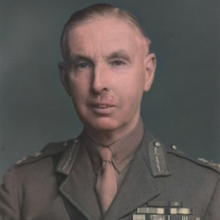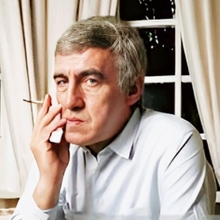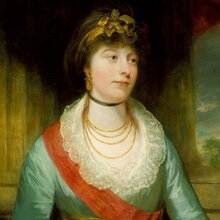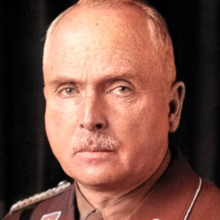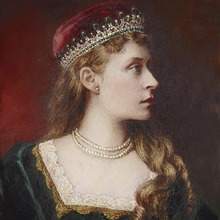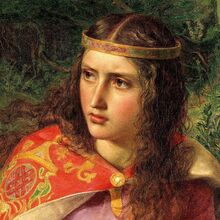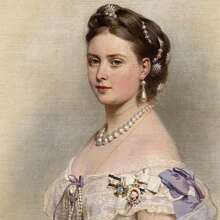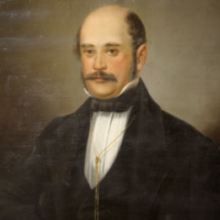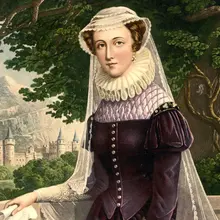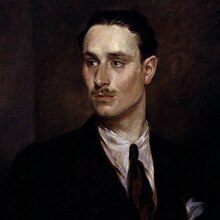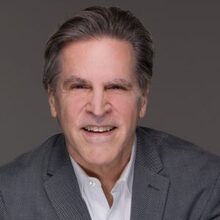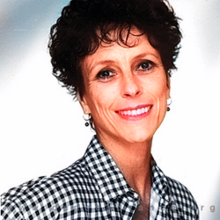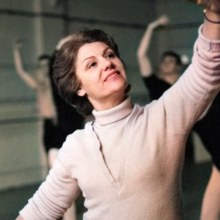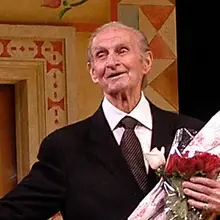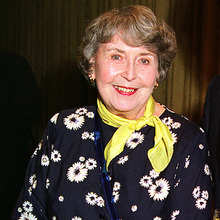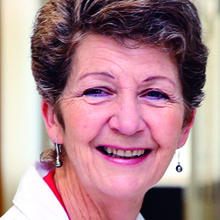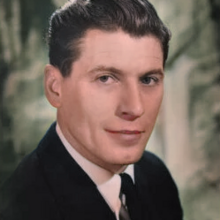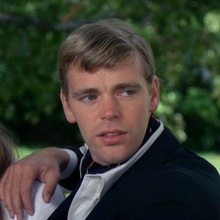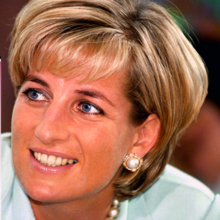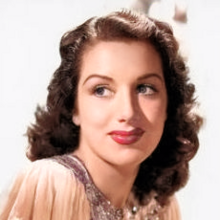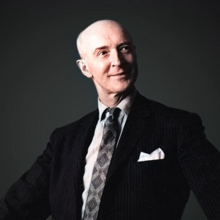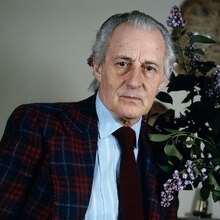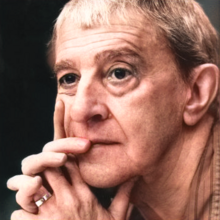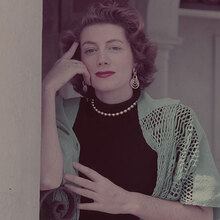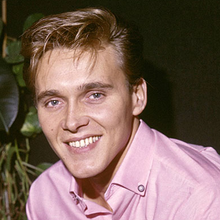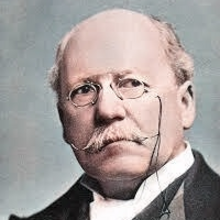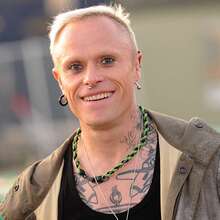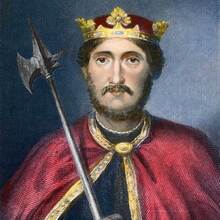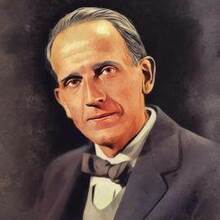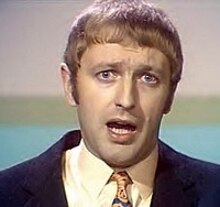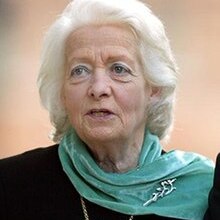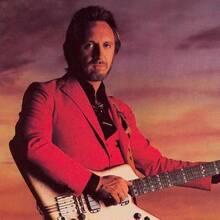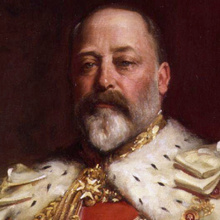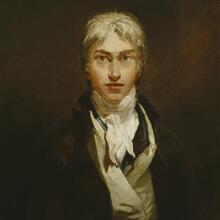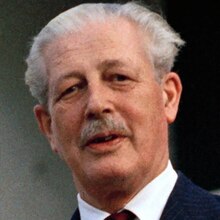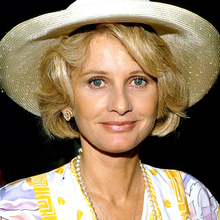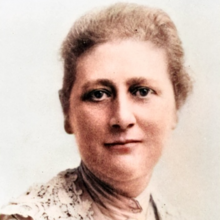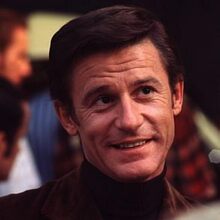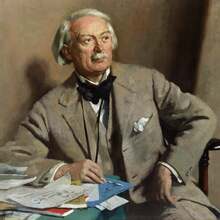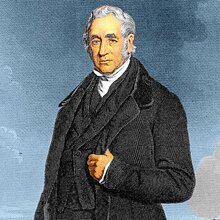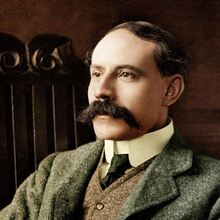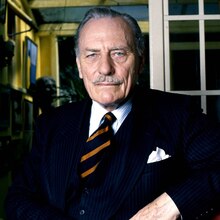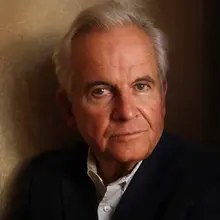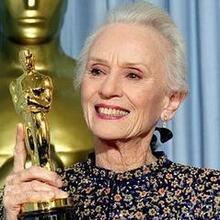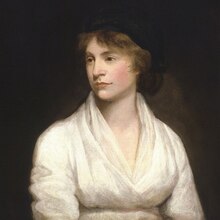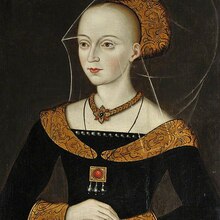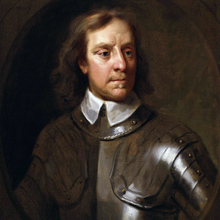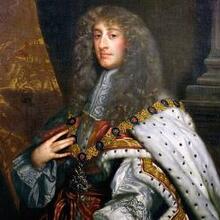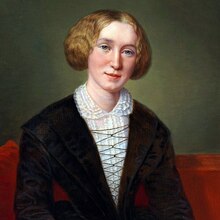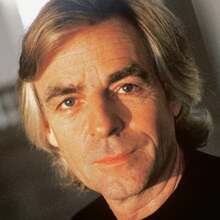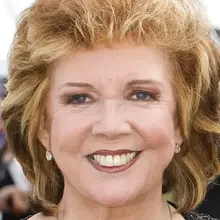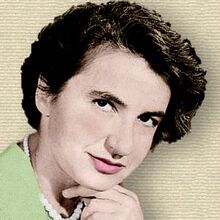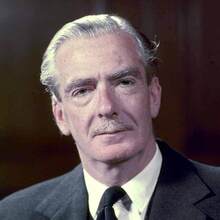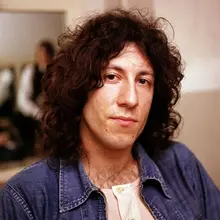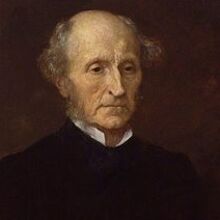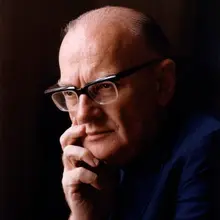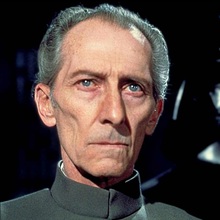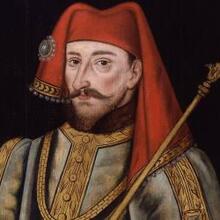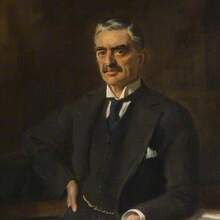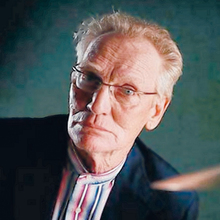 George Elton Mayo
1880 - 1949
Psychologist and sociologist
George Elton Mayo
1880 - 1949
Psychologist and sociologist
 David Mitrany
1888 - 1975
Political Scientist
David Mitrany
1888 - 1975
Political Scientist
 William Herschel
1738 - 1822
Founder of sidereal astronomy
William Herschel
1738 - 1822
Founder of sidereal astronomy
 Robin Gibb
1949 - 2012
Singer, songwriter and member of the Bee Gees
Robin Gibb
1949 - 2012
Singer, songwriter and member of the Bee Gees
 Deven Verma
1937 - 2014
Actor, director and producer of Hindi cinema
Deven Verma
1937 - 2014
Actor, director and producer of Hindi cinema
 Keith Charles Flint
1969 - 2019
Singer and dancer of The Prodigy
Keith Charles Flint
1969 - 2019
Singer and dancer of The Prodigy
 Thomas Cromwell
1485 - 1540
Chief minister to Henry VIII, leader
Thomas Cromwell
1485 - 1540
Chief minister to Henry VIII, leader
 Charlie Chaplin
1889 - 1977
Comedian, filmmaker, composer
Charlie Chaplin
1889 - 1977
Comedian, filmmaker, composer
 Yusuf Idris
1927 - 1991
Writer and playwright
Yusuf Idris
1927 - 1991
Writer and playwright
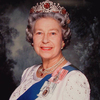 Elizabeth Alexandra Mary
1926 - 2022
Elizabeth Alexandra Mary
1926 - 2022
 Sir Grafton Elliot Smith
1871 - 1937
Anatomy, Egyptology, and hyperdiffusionism
Sir Grafton Elliot Smith
1871 - 1937
Anatomy, Egyptology, and hyperdiffusionism
 J. Paul Getty
1892 - 1976
Businessman
J. Paul Getty
1892 - 1976
Businessman
 Tayo Aderinokun
1955 - 2011
CEO of Guaranty Trust Bank
Tayo Aderinokun
1955 - 2011
CEO of Guaranty Trust Bank
 Catherine Parr
1512 - 1548
Queen consort of England and Ireland
Catherine Parr
1512 - 1548
Queen consort of England and Ireland
 William Trevor
1928 - 2016
Novelist and short story writer
William Trevor
1928 - 2016
Novelist and short story writer
 Ignaz Semmelweis
1818 - 1865
Discovering the cause of puerperal fever
Ignaz Semmelweis
1818 - 1865
Discovering the cause of puerperal fever
 Harold Godwinson
1022 - 1066
The last crowned Anglo-Saxon king of England
Harold Godwinson
1022 - 1066
The last crowned Anglo-Saxon king of England
 Joan Fontaine
1917 - 2013
Hitchcock's leading lady
Joan Fontaine
1917 - 2013
Hitchcock's leading lady
 Margaret Hilda Thatcher
1925 - 2013
Prime Minister of the United Kingdom
Margaret Hilda Thatcher
1925 - 2013
Prime Minister of the United Kingdom
 Rudolf Diesel
1858 - 1913
Inventing the diesel engine
Rudolf Diesel
1858 - 1913
Inventing the diesel engine
 Walter Gotell
1924 - 1997
James Bond films
Walter Gotell
1924 - 1997
James Bond films
 Evelyn Emmet, Baroness Emmet of Amberley
1899 - 1980
Member of Parliament for East Grinstead
Evelyn Emmet, Baroness Emmet of Amberley
1899 - 1980
Member of Parliament for East Grinstead
 Elizabeth Taylor
1932 - 2011
movie star and AIDS activist
Elizabeth Taylor
1932 - 2011
movie star and AIDS activist
 Louis-Andre de Grimaldi
1736 - 1804
Bishop of Le Mans and Noyon, Peer of France
Louis-Andre de Grimaldi
1736 - 1804
Bishop of Le Mans and Noyon, Peer of France
 Nizar Qabbani
1923 - 1998
Poet, writer, publisher
Nizar Qabbani
1923 - 1998
Poet, writer, publisher
 Charles Edward, Duke of Saxe-Coburg and Gotha
1884 - 1954
Duke of Saxe-Coburg and Gotha
Charles Edward, Duke of Saxe-Coburg and Gotha
1884 - 1954
Duke of Saxe-Coburg and Gotha
 Elizabeth Bowen
1899 - 1973
Novelist and short story writer
Elizabeth Bowen
1899 - 1973
Novelist and short story writer
 Michael Gough
1916 - 2011
Actor
Michael Gough
1916 - 2011
Actor
 Geoffrey Chaucer
1343 - 1400
Poet
Geoffrey Chaucer
1343 - 1400
Poet
 George V
1865 - 1936
King of the United Kingdom
George V
1865 - 1936
King of the United Kingdom
 Puey Ungpakorn
1916 - 1999
Economist and Academic
Puey Ungpakorn
1916 - 1999
Economist and Academic
 Princess Alice of Battenberg
1885 - 1969
Mother of Prince Philip, Duke of Edinburgh
Princess Alice of Battenberg
1885 - 1969
Mother of Prince Philip, Duke of Edinburgh
 William the Conqueror
1028 - 1087
King of England, Duke of Normandy,
William the Conqueror
1028 - 1087
King of England, Duke of Normandy,
 Wendy Toye
1917 - 2010
Dancer, stage and film director and actress
Wendy Toye
1917 - 2010
Dancer, stage and film director and actress
 Harrie Massey
1908 - 1983
Physicist and electronics engineer
Harrie Massey
1908 - 1983
Physicist and electronics engineer
 Ginger Baker
1939 - 2019
Drummer of Cream,and Ginger Baker's Air Force
Ginger Baker
1939 - 2019
Drummer of Cream,and Ginger Baker's Air Force
 Mary Wollstonecraft
1759 - 1797
Pioneering researcher in atomic
Mary Wollstonecraft
1759 - 1797
Pioneering researcher in atomic
 Charles Babbage
1791 - 1871
Originator of the concept a programmable computer
Charles Babbage
1791 - 1871
Originator of the concept a programmable computer
 Abd al-Halim Hafez
1929 - 1977
Singer and actor
Abd al-Halim Hafez
1929 - 1977
Singer and actor
 Peter Sellers
1925 - 1980
Actor, comedian, singer, star of The Goon Show
Peter Sellers
1925 - 1980
Actor, comedian, singer, star of The Goon Show
 Edouard Percy Cranwill Girouard
1867 - 1932
Railway builder and colonial administrator
Edouard Percy Cranwill Girouard
1867 - 1932
Railway builder and colonial administrator
 Henry VI
1421 - 1471
King of England and disputed King of France
Henry VI
1421 - 1471
King of England and disputed King of France
 Christine McVie
1943 - 2022
Member of Fleetwood Mac and Chicken Shack
Christine McVie
1943 - 2022
Member of Fleetwood Mac and Chicken Shack
 Chukwuemeka Odumegwu Ojukwu
1933 - 2011
President of Biafra
Chukwuemeka Odumegwu Ojukwu
1933 - 2011
President of Biafra
 Frances Ruth Shand Kydd
1936 - 2004
Aristocrat and socialite
Frances Ruth Shand Kydd
1936 - 2004
Aristocrat and socialite
 Edward Jenner
1749 - 1823
Surgeon and discoverer of smallpox vaccine
Edward Jenner
1749 - 1823
Surgeon and discoverer of smallpox vaccine
 James Charles Stuart
1566 - 1625
King of England and Scotland,
James Charles Stuart
1566 - 1625
King of England and Scotland,
 Douglas Bader
1910 - 1982
Royal Air Force flying Second World War
Douglas Bader
1910 - 1982
Royal Air Force flying Second World War
 Peter Enahoro
1935 - 2023
Journalist and author
Peter Enahoro
1935 - 2023
Journalist and author
 Joe Cocker
1944 - 2014
Blues-rock singer, songwriter, and musician
Joe Cocker
1944 - 2014
Blues-rock singer, songwriter, and musician
 Bram Stoker
1847 - 1912
Author of Dracula
Bram Stoker
1847 - 1912
Author of Dracula
 Mary of Guise
1515 - 1560
Queen consort and regent of Scotland
Mary of Guise
1515 - 1560
Queen consort and regent of Scotland
 Ghulam Ishaq Khan
1915 - 2006
Seventh president of Pakistan
Ghulam Ishaq Khan
1915 - 2006
Seventh president of Pakistan
 Michal Bergson
1820 - 1898
Composer and pianist
Michal Bergson
1820 - 1898
Composer and pianist
 Abdul Razak Hussein
1922 - 1976
Prime Minister of Malaysia
Abdul Razak Hussein
1922 - 1976
Prime Minister of Malaysia
 Albert, Prince Consort
1819 - 1861
Husband of Queen Victoria
Albert, Prince Consort
1819 - 1861
Husband of Queen Victoria
 Sir Francis Drake
1540 - 1596
Circumnavigating the globe and fighting
Sir Francis Drake
1540 - 1596
Circumnavigating the globe and fighting
 Horatio Nelson
1758 - 1805
Naval commander
Horatio Nelson
1758 - 1805
Naval commander
 Brefni O'Rorke
1889 - 1946
Actor
Brefni O'Rorke
1889 - 1946
Actor
 Ronald Ernest Aitchison
1921 - 1996
Physicist and electronics engineer
Ronald Ernest Aitchison
1921 - 1996
Physicist and electronics engineer
 Samuel Cunard
1787 - 1865
Founder of the Cunard Line
Samuel Cunard
1787 - 1865
Founder of the Cunard Line
 Winston Leonard Spencer Churchill
1874 - 1965
Prime Minister of the United Kingdom and leader
Winston Leonard Spencer Churchill
1874 - 1965
Prime Minister of the United Kingdom and leader
 Germaine Greer
1939 - 2021
writer and public intellectual
Germaine Greer
1939 - 2021
writer and public intellectual
 Jan Kowalewski
1892 - 1965
Cryptologist and intelligence officer
Jan Kowalewski
1892 - 1965
Cryptologist and intelligence officer
 Christopher Gable
1940 - 1998
Ballet dancer, choreographer and actor
Christopher Gable
1940 - 1998
Ballet dancer, choreographer and actor
 Bob Hoskins
1942 - 2014
Blues-rock singer, songwriter, and musician
Bob Hoskins
1942 - 2014
Blues-rock singer, songwriter, and musician
 Laurence Olivier
1907 - 1989
Actor and director
Laurence Olivier
1907 - 1989
Actor and director
 Ian Lancaster Fleming
1908 - 1964
Creator of James Bond series of spy novels
Ian Lancaster Fleming
1908 - 1964
Creator of James Bond series of spy novels
 John David McAfee
1945 - 2021
Computer programmer
John David McAfee
1945 - 2021
Computer programmer
 Joseph Mallord William Turner
1775 - 1851
Romantic landscape painter, printmaker
Joseph Mallord William Turner
1775 - 1851
Romantic landscape painter, printmaker
 Harold Wilson
1916 - 1995
Labour Party leader and Prime Minister
Harold Wilson
1916 - 1995
Labour Party leader and Prime Minister
 Roger George Moore
1927 - 2017
Actor
Roger George Moore
1927 - 2017
Actor
 Syd Barrett
1946 - 2006
Co-founder, singer, guitarist
Syd Barrett
1946 - 2006
Co-founder, singer, guitarist
 Sidney Nolan
1917 - 1992
Urban landscape painter
Sidney Nolan
1917 - 1992
Urban landscape painter
 Wladyslaw Sikorski
1881 - 1943
Prime minister of Poland
Wladyslaw Sikorski
1881 - 1943
Prime minister of Poland
 Birabongse Bhanudej
1914 - 1985
Racing Driver
Birabongse Bhanudej
1914 - 1985
Racing Driver
 Adeline genee
1878 - 1970
Ballet dancer
Adeline genee
1878 - 1970
Ballet dancer
 Tony Scott
1944 - 2012
Film director and producer
Tony Scott
1944 - 2012
Film director and producer
 Stanley Holden
1928 - 2007
Character dancer and choreographer
Stanley Holden
1928 - 2007
Character dancer and choreographer
 Richard Brinsley Sheridan
1751 - 1816
Playwright, orator, and Whig politician
Richard Brinsley Sheridan
1751 - 1816
Playwright, orator, and Whig politician
 Lady Jane Grey
1537 - 1554
Queen of England and Ireland for nine days
Lady Jane Grey
1537 - 1554
Queen of England and Ireland for nine days
 Thomas Patrick McKenna
1929 - 2011
Character actor
Thomas Patrick McKenna
1929 - 2011
Character actor
 Adelaide of Saxe-Meiningen
1792 - 1849
Queen consort of the United Kingdom and Hanover
Adelaide of Saxe-Meiningen
1792 - 1849
Queen consort of the United Kingdom and Hanover
 Mamdouh Salem
1918 - 1988
Prime Minister of Egypt
Mamdouh Salem
1918 - 1988
Prime Minister of Egypt
 Albert Finney
1936 - 2019
Actor of stage and screen
Albert Finney
1936 - 2019
Actor of stage and screen
 Enoch Powell
1912 - 1998
Minister of Health, Conservative MP
Enoch Powell
1912 - 1998
Minister of Health, Conservative MP
 Olivia de Havilland
1916 - 2020
Actress of Hollywood’s Golden Age
Olivia de Havilland
1916 - 2020
Actress of Hollywood’s Golden Age
 Charles Stuart
1600 - 1649
Monarch who ruled with absolute power
Charles Stuart
1600 - 1649
Monarch who ruled with absolute power
 John Wesley
1703 - 1791
Theologian, evangelist, and founder of Methodism
John Wesley
1703 - 1791
Theologian, evangelist, and founder of Methodism
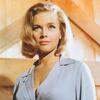 Honor Blackman
1925 - 2020
Actress and singer
Honor Blackman
1925 - 2020
Actress and singer
 Thomas Edward Lawrence
1888 - 1935
Archaeologist and military officer
Thomas Edward Lawrence
1888 - 1935
Archaeologist and military officer
 William Wilberforce
1759 - 1833
Political activist and leader
William Wilberforce
1759 - 1833
Political activist and leader
 Dev Anand
1923 - 2011
Actor, director and producer of Hindi cinema
Dev Anand
1923 - 2011
Actor, director and producer of Hindi cinema
 James Ussher
1581 - 1656
Archbishop of Armagh and Primate of All Ireland
James Ussher
1581 - 1656
Archbishop of Armagh and Primate of All Ireland
 Walter Wilson Froggatt
1858 - 1937
Entomologist and author of Australian Insects
Walter Wilson Froggatt
1858 - 1937
Entomologist and author of Australian Insects
 Andrzej Panufnik
1914 - 1991
Composer and conductor
Andrzej Panufnik
1914 - 1991
Composer and conductor
 Beatrix Potter
1866 - 1943
Children's author and illustrator
Beatrix Potter
1866 - 1943
Children's author and illustrator
 Ian Fraser Kilmister
1945 - 2015
Musician, singer, songwriter
Ian Fraser Kilmister
1945 - 2015
Musician, singer, songwriter
 Charlotte of Mecklenburg-Strelitz
1744 - 1818
Queen consort of Great Britain and Ireland
Charlotte of Mecklenburg-Strelitz
1744 - 1818
Queen consort of Great Britain and Ireland
 Maqbool Fida Husain
1915 - 2011
Modernist painter and filmmaker
Maqbool Fida Husain
1915 - 2011
Modernist painter and filmmaker
 Hormuzd Rassam
1826 - 1910
Excavator of Nineveh and Sippar
Hormuzd Rassam
1826 - 1910
Excavator of Nineveh and Sippar
 Conchita Supervia
1895 - 1936
Opera singer and recitalist
Conchita Supervia
1895 - 1936
Opera singer and recitalist
 Carl Maria von Weber
1786 - 1826
Composer, pianist, critic
Carl Maria von Weber
1786 - 1826
Composer, pianist, critic
 Feliks Ankerstein
1897 - 1955
Polish Army major and intelligence officer
Feliks Ankerstein
1897 - 1955
Polish Army major and intelligence officer
 Brian Jones
1942 - 1969
Multi-instrumentalist
Brian Jones
1942 - 1969
Multi-instrumentalist
 Edward Elgar
1857 - 1934
Composer of orchestral and choral works
Edward Elgar
1857 - 1934
Composer of orchestral and choral works
 Richard I of England
1157 - 1199
King of England and leader of the Third Crusade
Richard I of England
1157 - 1199
King of England and leader of the Third Crusade
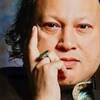 Nusrat Fateh Ali Khan
1948 - 1997
Singer and master of Qawwali style
Nusrat Fateh Ali Khan
1948 - 1997
Singer and master of Qawwali style
 Will Ashton
1881 - 1963
Painter and art critic
Will Ashton
1881 - 1963
Painter and art critic
 Emmeline Pankhurst
1858 - 1928
Political activist and suffragette leader
Emmeline Pankhurst
1858 - 1928
Political activist and suffragette leader
 John Hurt
1940 - 2017
Actor and voice actor
John Hurt
1940 - 2017
Actor and voice actor
 A. A. Milne
1882 - 1956
Writer, poet, playwright, and journalist
A. A. Milne
1882 - 1956
Writer, poet, playwright, and journalist
 Virginia Woolf
1882 - 1941
Novelist, essayist, publisher, critic
Virginia Woolf
1882 - 1941
Novelist, essayist, publisher, critic
 James Stuart
1633 - 1701
King of England, Scotland and Ireland from 1685
James Stuart
1633 - 1701
King of England, Scotland and Ireland from 1685
 Roman Czerniawski
1910 - 1985
Polish Air Force captain and Allied double agent
Roman Czerniawski
1910 - 1985
Polish Air Force captain and Allied double agent
 Elizabeth of York
1466 - 1503
Queen consort of England
Elizabeth of York
1466 - 1503
Queen consort of England
 Victoria of Saxe-Coburg-Saalfeld
1786 - 1861
Mother of Queen Victoria of the United Kingdom
Victoria of Saxe-Coburg-Saalfeld
1786 - 1861
Mother of Queen Victoria of the United Kingdom
 Hans Holbein the Younger
1497 - 1543
Portraitist and printmaker
Hans Holbein the Younger
1497 - 1543
Portraitist and printmaker
 Kerr Grant
1908 - 1983
Physicist and electronics engineer
Kerr Grant
1908 - 1983
Physicist and electronics engineer
 Ada Lovelace
1815 - 1852
Mathematician and writer
Ada Lovelace
1815 - 1852
Mathematician and writer
 Teki Bicoku
1926 - 2009
Editor of Drita and The Adriatic Review
Teki Bicoku
1926 - 2009
Editor of Drita and The Adriatic Review
 Joseph Tomelty
1911 - 1995
Actor and playwright
Joseph Tomelty
1911 - 1995
Actor and playwright
 Amy Jade Winehouse
1983 - 2011
Singer and songwriter
Amy Jade Winehouse
1983 - 2011
Singer and songwriter
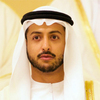 Khalid bin Sultan Al Qasimi
1980 - 2019
Qasimi fashion label
Khalid bin Sultan Al Qasimi
1980 - 2019
Qasimi fashion label
 George-Etienne Cartier
1814 - 1873
Father of Confederation
George-Etienne Cartier
1814 - 1873
Father of Confederation
 Alec Guinness
1914 - 2000
Actor of stage and screen
Alec Guinness
1914 - 2000
Actor of stage and screen
 Roddy McDowall
1928 - 1998
Actor in Planet of the Apes and Cleopatra
Roddy McDowall
1928 - 1998
Actor in Planet of the Apes and Cleopatra
 Peter Cushing
1913 - 1994
Actor known for his roles in Hammer horror films
Peter Cushing
1913 - 1994
Actor known for his roles in Hammer horror films
 Oliver Reed
1938 - 1999
Actor
Oliver Reed
1938 - 1999
Actor
 Yinka Craig
1948 - 2008
Sports commentator and analyst
Yinka Craig
1948 - 2008
Sports commentator and analyst
 Puey Ungphakorn
1916 - 1999
Economist, Rector
Puey Ungphakorn
1916 - 1999
Economist, Rector
 Elizabeth Woodville
1437 - 1492
Queen consort of Edward IV and mother of Edward V
Elizabeth Woodville
1437 - 1492
Queen consort of Edward IV and mother of Edward V
 David Lloyd George
1863 - 1945
Prime Minister of the UK during First World War
David Lloyd George
1863 - 1945
Prime Minister of the UK during First World War
 James Mason
1909 - 1984
Actor
James Mason
1909 - 1984
Actor
 Frances Power Cobbe
1822 - 1904
Writer, philosopher, social reformer
Frances Power Cobbe
1822 - 1904
Writer, philosopher, social reformer
 Rosalind Elsie Franklin
1920 - 1958
Chemist and x-ray crystallographer
Rosalind Elsie Franklin
1920 - 1958
Chemist and x-ray crystallographer
 Ernest Henry Shackleton
1874 - 1922
Antarctic explorer
Ernest Henry Shackleton
1874 - 1922
Antarctic explorer
 Roger Altounyan
1922 - 1987
Pioneering the use of sodium cromoglycate
Roger Altounyan
1922 - 1987
Pioneering the use of sodium cromoglycate
 Umaru Dikko
1936 - 2014
Transport minister
Umaru Dikko
1936 - 2014
Transport minister
 Jamil Bachir
1920 - 1977
Oud player and teacher
Jamil Bachir
1920 - 1977
Oud player and teacher
 Graham Chapman
1941 - 1989
Actor, comedian and writer
Graham Chapman
1941 - 1989
Actor, comedian and writer
 Ferdynand Goetel
1890 - 1960
Novelist, playwright, essayist, screenwriter
Ferdynand Goetel
1890 - 1960
Novelist, playwright, essayist, screenwriter
 Anwar Shemza
1928 - 1985
Painter and writer
Anwar Shemza
1928 - 1985
Painter and writer
 Clive James
1939 - 2019
Writing literary criticism, television reviews
Clive James
1939 - 2019
Writing literary criticism, television reviews
 Harold Macmillan
1894 - 1986
Prime Minister of the United Kingdom (1957-1963)
Harold Macmillan
1894 - 1986
Prime Minister of the United Kingdom (1957-1963)
 Abdul Haris Nasution
1918 - 2000
Commander of the Indonesian National Armed
Abdul Haris Nasution
1918 - 2000
Commander of the Indonesian National Armed
 Charles Robert Darwin
1809 - 1882
Naturalist, geologist, biologist
Charles Robert Darwin
1809 - 1882
Naturalist, geologist, biologist
 Mary Anne Evans
1819 - 1880
Novelist and poet
Mary Anne Evans
1819 - 1880
Novelist and poet
 Dinu Patriciu
1950 - 2014
Businessman, Politician, Architect
Dinu Patriciu
1950 - 2014
Businessman, Politician, Architect
 Yan kit So
1933 - 2001
Food historian and cookbook author
Yan kit So
1933 - 2001
Food historian and cookbook author
We Need -- admin in



